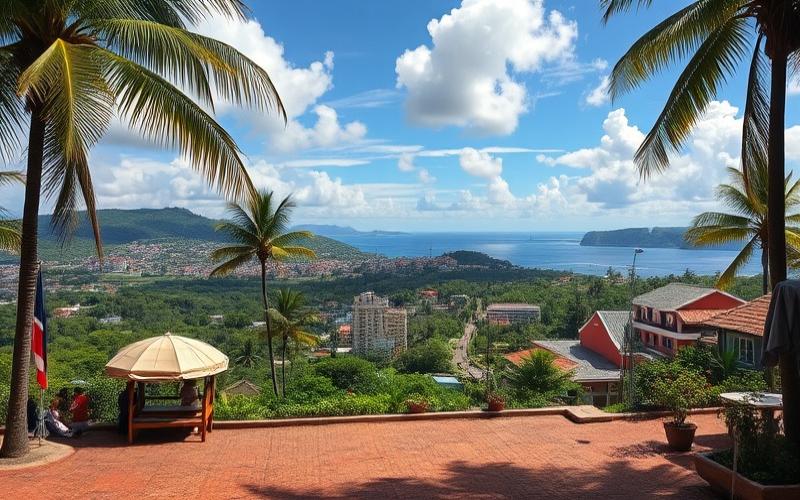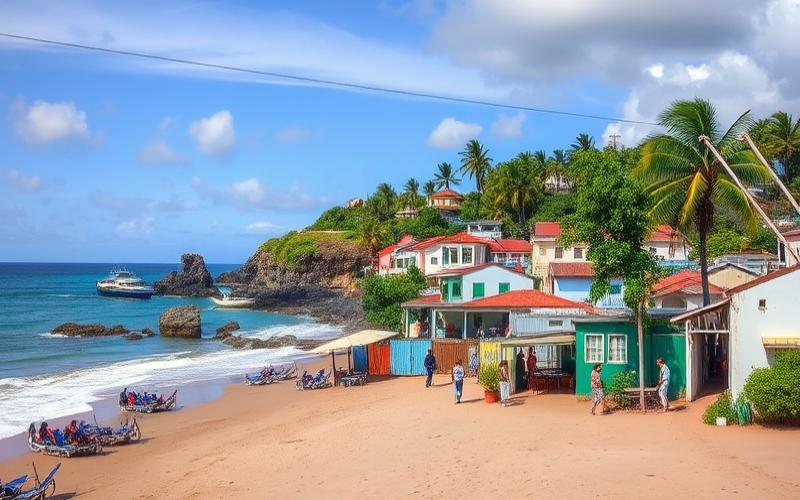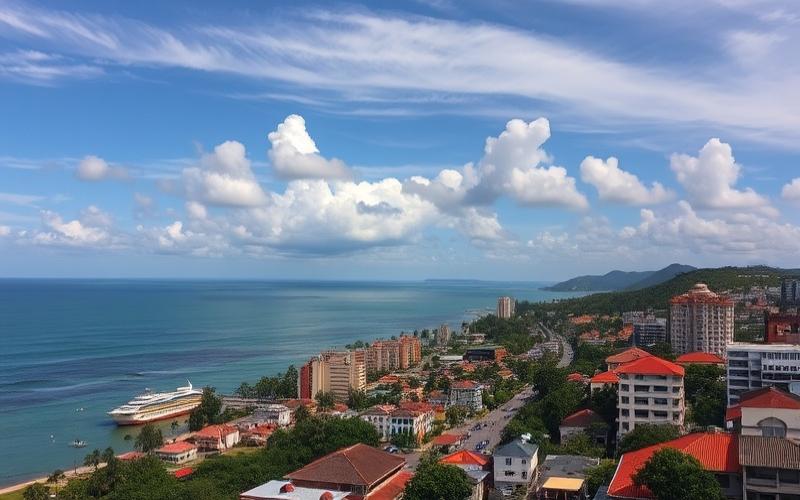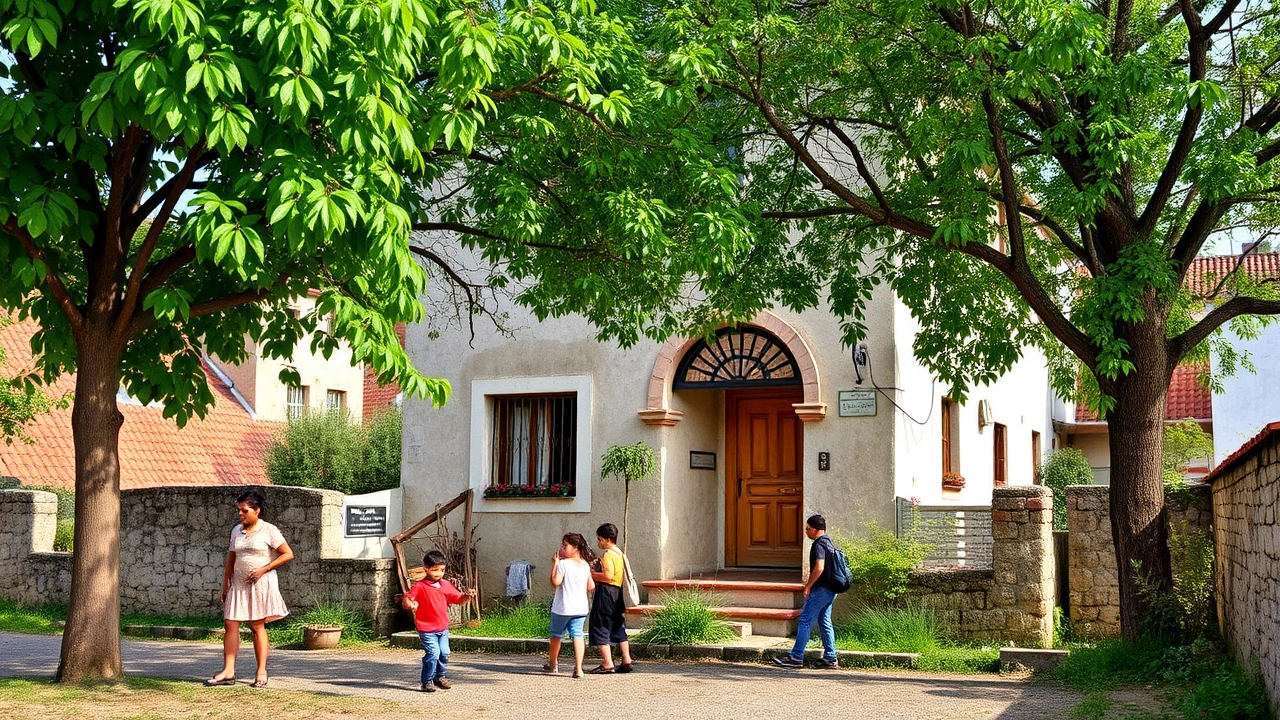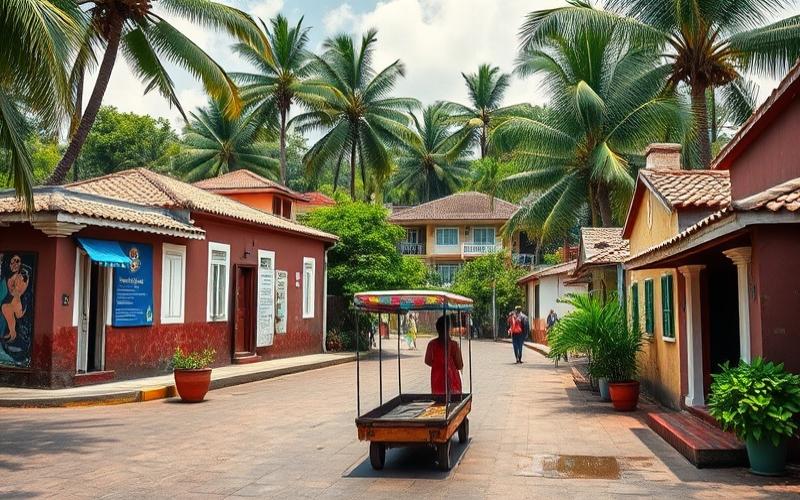
 Published on and written by Cyril Jarnias
Published on and written by Cyril Jarnias
The Dominican Republic, with its white sand beaches, tropical climate, and laid-back lifestyle, is attracting more and more foreign investors seeking their own piece of paradise. Whether for a vacation home, rental investment, or retirement plan in the sun, purchasing real estate in this Caribbean country can be an excellent opportunity. However, to get the most out of your investment, mastering the art of negotiation is crucial. In this article, we will explore winning strategies, local market specifics, and pitfalls to avoid for a successful real estate acquisition in the Dominican Republic.
Secrets to Successful Negotiation: Strategies to Get the Best Price
Negotiating a real estate purchase in the Dominican Republic can save you a significant amount of money if you know how to go about it. Here are some proven strategies to carry out your negotiations successfully:
Do your homework: Before even starting negotiations, make sure you have an in-depth knowledge of the local real estate market. Research average prices in your area of interest, recent trends, and future outlook. This information will give you a definite advantage during discussions with the seller.
Adopt a professional approach: Even if you’re excited about a property, keep your cool and remain professional. Show interest but not desperation. Sellers are more inclined to negotiate with buyers who appear to have other options.
Start low, but stay realistic: It’s common in the Dominican Republic to start negotiations with an offer below the asking price. However, be careful not to propose a price that’s too low, which could offend the seller or make them doubt your seriousness. An initial offer between 10% and 20% below the listed price is generally considered acceptable.
Be prepared to make concessions: Negotiation is a give-and-take game. Identify in advance the points you’re willing to concede and those that are non-negotiable for you. This will allow you to stay flexible while maintaining control of the situation.
Use flaws to your advantage: If the property needs repairs or renovations, don’t hesitate to point this out politely to justify a price reduction. Estimate the necessary work costs and use these estimates as negotiation arguments.
Play the patience card: In the Dominican Republic, negotiations can sometimes take time. Don’t rush and be prepared to wait if necessary. Sometimes, simply not appearing rushed can encourage the seller to lower their expectations.
Good to know:
In the Dominican Republic, negotiation is a common and expected practice in real estate transactions. Don’t be afraid to negotiate, but always do so with respect and professionalism.
Deciphering the Dominican Real Estate Market: Keys to Understanding and Anticipating
To negotiate effectively, it’s essential to understand the specifics of the Dominican real estate market. Here are some key points to keep in mind:
A growing market: The real estate sector in the Dominican Republic has experienced sustained growth for several years, particularly thanks to tourism and foreign investment. This trend has led to price increases in certain regions, especially in popular coastal areas.
Significant regional disparities: Prices and market dynamics can vary considerably from one region to another. Tourist areas like Punta Cana or Puerto Plata generally have higher prices than less developed inland regions.
The influence of seasonality: The Dominican real estate market can be influenced by tourist seasons. The high season (December to April) may see increased demand and prices, while the low season may offer better negotiation opportunities.
The impact of exchange rates: Fluctuations in the exchange rate between the Dominican peso and your home currency can significantly impact the real cost of your investment. Monitor these variations and try to leverage them during your negotiations.
The role of real estate agents: Although the market is becoming more professional, there are still many unlicensed real estate agents. Choose a recognized and experienced professional to assist you in your search and negotiations.
The importance of the property title: Make sure to thoroughly verify the validity of the property title before any transaction. Title issues are unfortunately still common in certain regions of the country.
Good to know:
The Dominican real estate market still offers great opportunities, but it’s constantly evolving. Stay informed about local trends and don’t hesitate to consult experts to refine your investment strategy.
Pitfalls to Avoid: Common Mistakes When Buying Real Estate in the Dominican Republic
Even the most savvy investors can fall into certain traps when purchasing real estate in the Dominican Republic. Here are the most common mistakes to avoid:
Neglecting legal checks: Never skip a thorough verification of the property title and any potential easements or restrictions. Hire a local real estate attorney to perform these checks.
Underestimating additional costs: Beyond the purchase price, don’t forget to account for notary fees, taxes, real estate agent fees, and potential renovation or furnishing costs. These expenses can represent a significant portion of the total budget.
Ignoring zoning regulations: Before buying, make sure the property complies with local zoning rules and that your potential projects (extension, pool, etc.) are feasible.
Rushing due to excitement: Don’t get carried away by the excitement of having found your “piece of paradise.” Take time to think, compare, and negotiate.
Neglecting insurance: The Dominican Republic can be affected by hurricanes. Make sure your property is properly insured against these natural risks.
Trusting blindly: Even though Dominicans are known for their warmth and hospitality, remain vigilant in your transactions. Always verify the information given to you and don’t hesitate to ask for written proof.
Forgetting tax implications: Research the tax implications of your purchase, both in the Dominican Republic and in your home country. Poor tax planning could cost you dearly in the long run.
Good to know:
Most of these mistakes can be avoided by surrounding yourself with competent professionals: real estate agent, attorney, notary, and tax advisor. Don’t hesitate to invest in these services to secure your purchase.
Buying real estate in the Dominican Republic can be a rewarding and potentially very profitable experience if you know how to navigate the complexities of the local market. By mastering the art of negotiation, understanding market specifics, and avoiding common pitfalls, you’ll maximize your chances of making a successful investment.
Remember that patience is your best ally in this process. Take the time to research thoroughly, visit multiple properties, and weigh the pros and cons of each option. Don’t hesitate to call upon local professionals to guide and advise you throughout your purchasing journey.
Finally, keep in mind that real estate in the Dominican Republic isn’t just a financial investment—it’s also an investment in a lifestyle. Consider your long-term goals and how this property fits into your overall life project.
With a thoughtful and strategic approach, your dream of owning a piece of paradise in the Caribbean can become a rewarding and profitable reality.
Disclaimer: The information provided on this website is for informational purposes only and does not constitute financial, legal, or professional advice. We encourage you to consult qualified experts before making any investment, real estate, or expatriation decisions. Although we strive to maintain up-to-date and accurate information, we do not guarantee the completeness, accuracy, or timeliness of the proposed content. As investment and expatriation involve risks, we disclaim any liability for potential losses or damages arising from the use of this site. Your use of this site confirms your acceptance of these terms and your understanding of the associated risks.































